Vodafone has made three days of surprising announcements. Three of them for Web services soon to be accessible over their mobile network (MySpace, eBay and YouTube) and the other relating to the building out of their 3G networks in the future (analysis).
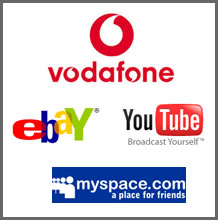 We thought it would be worthwhile taking a look as to why this might be happening and why it’s come at this time.
We thought it would be worthwhile taking a look as to why this might be happening and why it’s come at this time.
Why the push?
Well, lots of other companies are moving in to tread on Vodafone’s toes – example – Virgin Mobile now with NTL/Telewest TV/broadband/telephone service – as all forms of communication converge.
Vodafone is pretty much a mobile only company. They’re trying to change this, through deals with BT to offer fixed-line broadband and similar offerings in Italy and Germany. In the converged game, they’re pretty weak.
This weakness is leaving their previous highly-profitable dominance of the mobile space threatened.
They’ve been aware of the benefit of differentiating their service through providing access to content for a while, but these recent moves mark a serious step forward.
Previously it’s been about them providing the means of accessing content from third parties, games, music, etc. These most recent deals are about access to services.
I know content is being accessed, a la YouTube, but they’re actually providing access to the service … one that happens to be providing content.
What’s the benefit?
There’s many advantages to Vodafone on this.
Short term it’s about making people associate Vodafone with being on the leading-edge – “Wow, they’ve got MySpace and YouTube!”
It’s unclear how far this benefit will extend into the future, as more phones become easier to browse the Web, where these services live.
eBay, MySpace and YouTube all have fanatical following. When people become embroiled in them, they _must_ find out what has _just_ happened. They’re a modern day replacement for TV soap-operas.
Obsessions like these drive people to choose mobile phones that enable them to get access – and Vodafone will be shouting this from the roof tops to encourage people to switch to them.
Interestingly, those three services are also used by a great deal of people who don’t have a strong technical understanding. People who don’t know that the whole Internet is available through the Web Browser on their mobile phone. This changing is just a matter of time.
Another short-term benefit for them is the amount of revenue they’ll end up generating. We imagine that it’s cost Vodafone a pretty penny to get exclusives from all three services, but this will be made up by the seriously boosted data charges that they’ll be clawing in.
MySpace is pretty rich with bandwidth hungry media – lots of photos, and many many pages to check. Same for eBay.
The real earner for them will be YouTube. You’ll struggle to find an application that uses as much data as video and with the ability to pass links to favourite videos, subscribers will be helping their friends run up big data charges too.
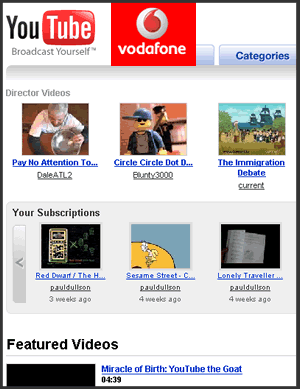 Is this now getting boring? Vodafone have announced another content access deal, this time with YouTube.
Is this now getting boring? Vodafone have announced another content access deal, this time with YouTube.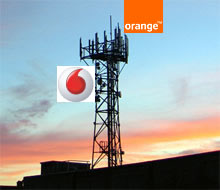 It’s all about their RANs – Radio Access Networks, which connect customers mobiles to the operators networks.
It’s all about their RANs – Radio Access Networks, which connect customers mobiles to the operators networks. Vodafone Europe has signed an exclusive deal with MySpace to get MySpace Mobile on their service.
Vodafone Europe has signed an exclusive deal with MySpace to get MySpace Mobile on their service.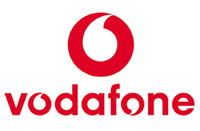 MySpace did a
MySpace did a 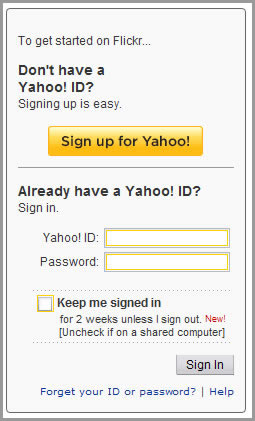 That’s the response that Yahoo! (the owners of popular Web 2.0 photo sharing site
That’s the response that Yahoo! (the owners of popular Web 2.0 photo sharing site 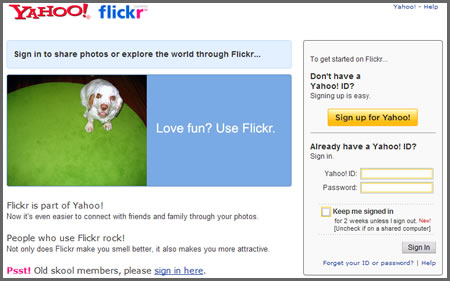
 Media giants Viacom International have finally lost patience with YouTube and demanded that they remove more than 100,000 of their video clips that have been posted up without permission.
Media giants Viacom International have finally lost patience with YouTube and demanded that they remove more than 100,000 of their video clips that have been posted up without permission. In a statement, a clearly miffed Viacom said: “Virtually every other distributor has acknowledged the fair value of entertainment content and has taken deliberate steps to concluding agreements with content providers.”
In a statement, a clearly miffed Viacom said: “Virtually every other distributor has acknowledged the fair value of entertainment content and has taken deliberate steps to concluding agreements with content providers.” Removing Viacom’s rich portfolio of popular clips may certainly result in loss of revenue for YouTube, but some media analysts reckon it could be a lose-lose situation all round, as both parties risk naffing off consumers.
Removing Viacom’s rich portfolio of popular clips may certainly result in loss of revenue for YouTube, but some media analysts reckon it could be a lose-lose situation all round, as both parties risk naffing off consumers.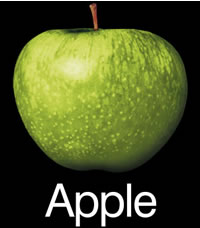 Love has broken out between the two Apples – computers and music.
Love has broken out between the two Apples – computers and music. The terms of settlement are confidential.
The terms of settlement are confidential.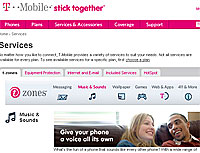 High speed mobile phones and new gadgets are set to send revenue from mobile entertainment services soaring over the next five years, according to market research firm Informa Telecoms & Media.
High speed mobile phones and new gadgets are set to send revenue from mobile entertainment services soaring over the next five years, according to market research firm Informa Telecoms & Media. “Advanced mobile content and services have been slow to take off, but this should not be confused with the deepening relationship that we have with our mobile phones,” commented report author Daniel Winterbottom, senior analyst at Informa Telecoms & Media.
“Advanced mobile content and services have been slow to take off, but this should not be confused with the deepening relationship that we have with our mobile phones,” commented report author Daniel Winterbottom, senior analyst at Informa Telecoms & Media. User-generated content is also expected to grow, with Informa predicting that revenue from user-generated services will hit $13.17 billion by 2011.
User-generated content is also expected to grow, with Informa predicting that revenue from user-generated services will hit $13.17 billion by 2011. So I’m being bombarded by Apple’s super-expensive advert campaign telling me how great Macs are and how only dull business nerds bother with PCs.
So I’m being bombarded by Apple’s super-expensive advert campaign telling me how great Macs are and how only dull business nerds bother with PCs.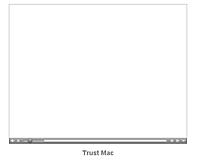 PC users are represented as dull business bores who wouldn’t know what fun is if it French-kissed them in the buttocks, while Mac users are seen to be spontaneous, fun-loving bon viveurs, hurtling along the highway of creativity at reckless speeds.
PC users are represented as dull business bores who wouldn’t know what fun is if it French-kissed them in the buttocks, while Mac users are seen to be spontaneous, fun-loving bon viveurs, hurtling along the highway of creativity at reckless speeds.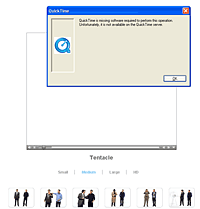 “Fair enough,” I think to myself, confident of a slick, smooth, user-friendly solution coming along.
“Fair enough,” I think to myself, confident of a slick, smooth, user-friendly solution coming along. They started at 4am, pegging 2,500 sheets of paper in the grass of a park to form a giant eye – the pun being that Australia was also watching the world.
They started at 4am, pegging 2,500 sheets of paper in the grass of a park to form a giant eye – the pun being that Australia was also watching the world.